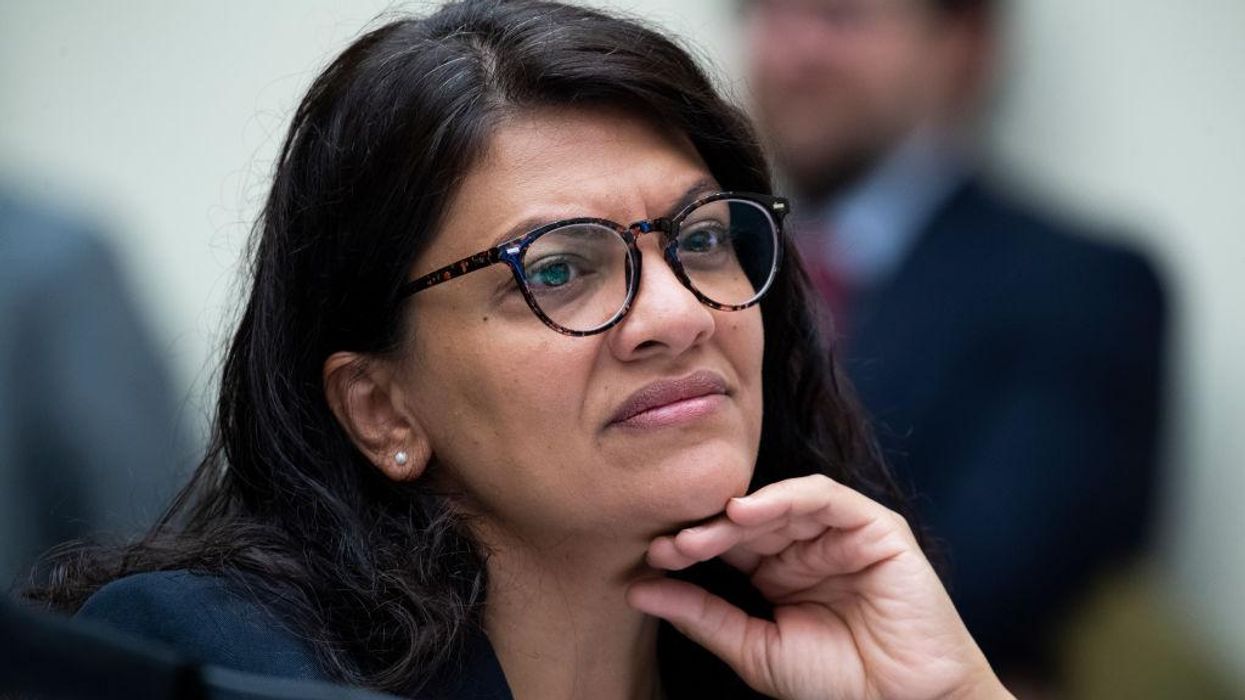
Tom Williams/CQ-Roll Call, Inc via Getty Images

Progressive "Squad" member Rep. Rashida Tlaib (D-Mich.) reiterated her support for legislation that would empty federal prisons within 10 years in a recent interview, appearing to be dismissive of the potential ramifications of that policy.
On Sunday's episode of "Axios on HBO," reporter Jonathan Swan asked the Democratic lawmaker about her support for the BREATHE Act, a sweeping far-left reform bill written by the Movement for Black Lives that would defund federal law enforcement and the prison system. The proposal would also abolish life sentences, abolish mandatory minimum sentencing laws, abolish Immigration and Customs Enforcement, cut the Department of Defense budget, and repeal the bipartisan 1994 crime bill.
"The BREATHE Act proposes emptying federal detention facilities within 10 years. To what extent have you wrestled with any potential downsides of releasing into society every single person who's currently in a federal prison?" Swan asked.
"Yeah, again, I think that everyone's like, 'OMG we're going to just release everybody.' That's not what I'm saying," Tlaib replied.
"That's what it says!" Swan protested, observing that the legislation calls for closing federal prisons.
"Yeah, but did you see how many people are mentally ill that are in prison right now?" Tlaib said, dismissing his point.
Swan then pressed her on the fact that the bill she endorsed says everyone gets released, including human traffickers and child sex predators, not just mentally ill people.
"Oh, I know," Tlaib said while denying that she supports the blanket release of people from federal prison.
"What I'm saying is look at who's in prison right now. No, look at the folks that are mentally ill, that have substance abuse problems."
.@jonathanvswan presses Rep. Tlaib on backing a bill to end federal prisons: To what extent have you wrestled w/ potential downsides? \n\nTlaib: I think everyone's like, oh my god, we're going to just release everybody.\n\nSwan: But the act you endorsed actually says release everyonepic.twitter.com/ZBX3T9wxQy— Axios (@Axios) 1637596854
"I'm not disagreeing with you that there are people who shouldn't be in prison," Swan said before Tlaib interrupted him.
"Yeah, but then why aren't you asking me about them? You're asking me about human traffickers and others that should stay [in prison]."
"What I'm trying to understand, because it is such a sweeping concrete proposal, do you believe that there are still categories of people who should be behind bars?" Swan asked.
"There are absolutely folks that — I don't under— you know, I don't know," Tlaib responded. "Because right now, the way the prison system was supposed to be like rehabilitary [sic], you know, it's supposed to be rehabilitation, right? ... I don't think there's any rehabilitation happening right now."
"Do you think all people can be rehabilitated?" Swan asked in a follow-up question.
"I don't think so. I've been very clear about that. And I only tell you that because, as somebody that has worked in the legal field and others, I don't even know if our society would even know how to be able to rehabilitate every single person that wants to harm people," Tlaib answered.
She added that what concerns her are statistics showing that many people who were incarcerated at a young age were put in prison with mental health or other issues and don't receive rehabilitative care that might keep them from re-offending. For instance, researchers in one study that examined prison populations found that about 7% of prison population growth from 1980 to 2000 — about 40,000 to 72,000 people — would have likely been placed in mental institutions in the past.
As for those that should remain behind bars, Tlaib said, "I would have to look at each case individually and figure that all out."